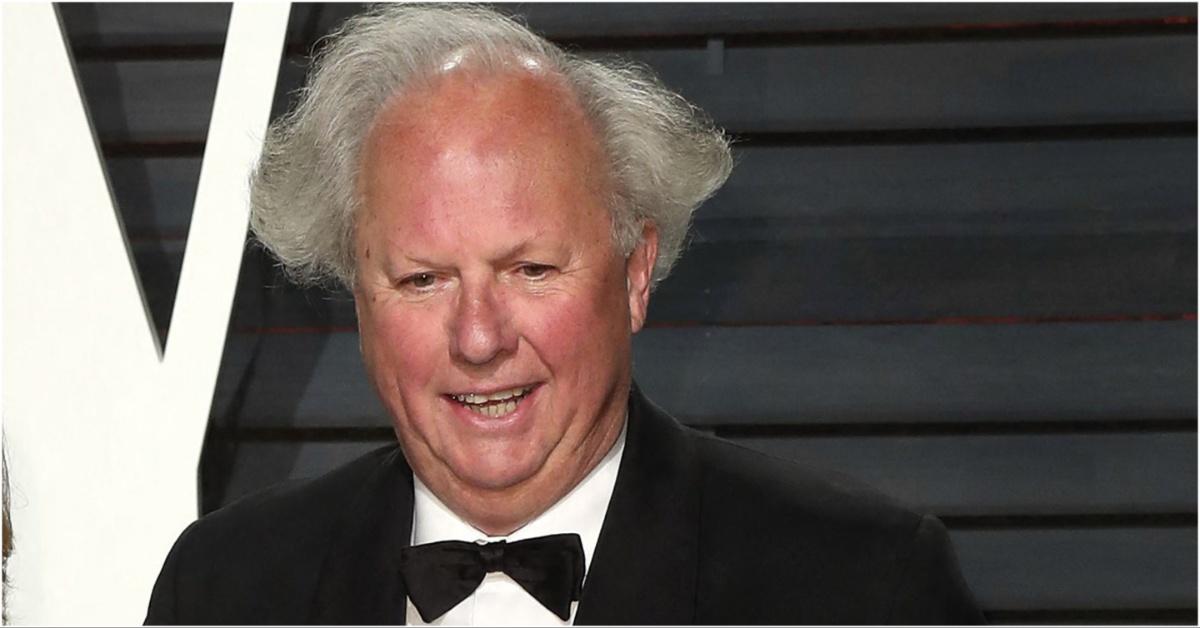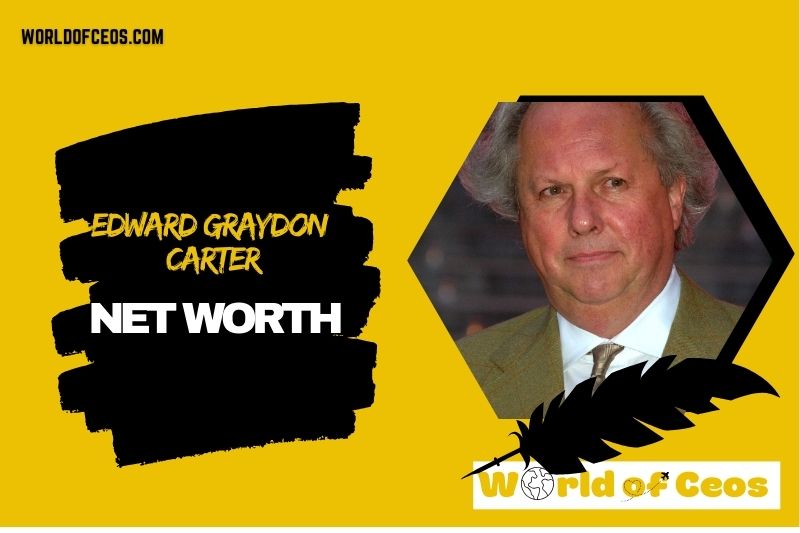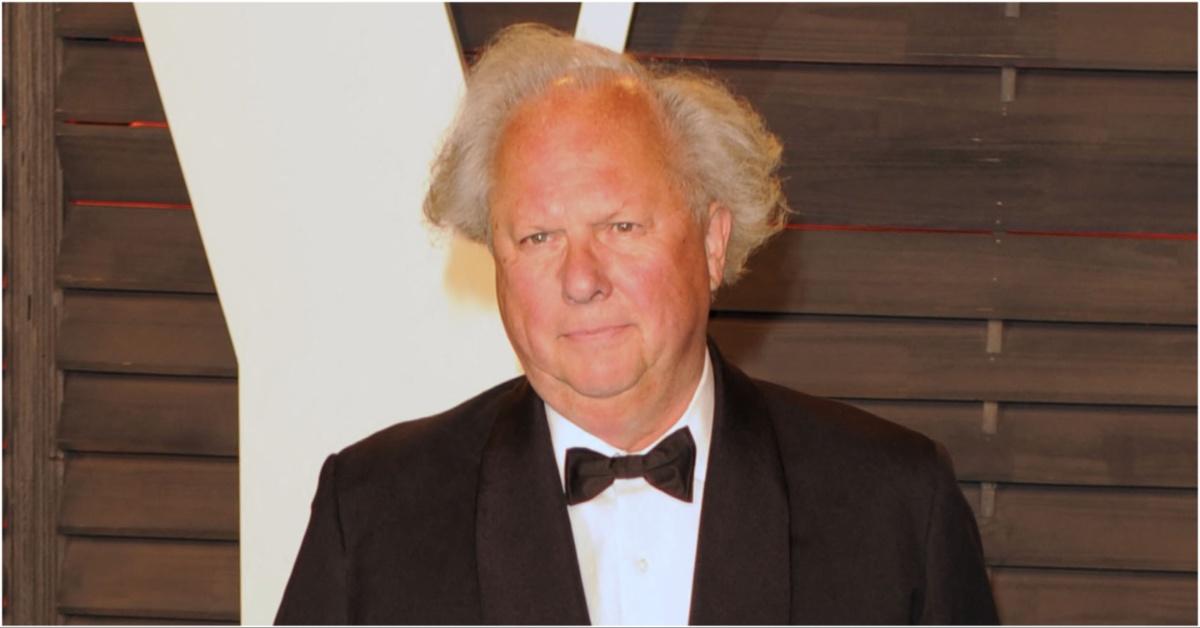Graydon Carter Net Worth: Unpacking The Financial Story Of A Media Icon
Have you ever wondered about the financial standing of someone who shaped an entire era of magazine journalism? It's a question many people ponder, especially when thinking about figures like Graydon Carter. For decades, he was a powerful voice in publishing, overseeing a magazine that truly defined culture and style for so many. People are often quite curious about how much money such a person might have gathered over a long and very successful career.
Graydon Carter, a name that brings to mind sharp wit, glamorous parties, and insightful writing, spent a significant part of his working life at the helm of a well-known publication. His influence spread far and wide, making him a central figure in media. So, it's really no surprise that folks want to get a better idea of his financial picture, and how someone in his position might accumulate wealth.
This article will take a closer look at Graydon Carter's professional path, exploring the various roles and ventures that contributed to his financial situation. We will try to piece together an estimate of his net worth, considering his salary, other business activities, and, you know, just what a person like him might be worth. It is a bit of a puzzle, but we can try to put the pieces together.
Table of Contents
- Biography: Graydon Carter
- Early Life and the Start of a Career
- Shaping an Era at Vanity Fair
- Beyond Vanity Fair: New Ventures
- What Makes Up the Money: Sources of Wealth
- Estimating the Total Financial Picture
- Frequently Asked Questions About Graydon Carter
- The Lasting Mark of a Media Figure
Biography: Graydon Carter
Graydon Carter has made a big mark in the world of magazines and media. Born in Canada, he eventually moved to the United States and became a very important person in publishing. He is known for his sharp mind and his ability to spot what people want to read. His career really shows how someone can climb to the very top of a creative industry, and it's quite a story, that.
Here is a quick look at some personal details and facts about him, just so you have a bit of background. This kind of information helps to set the stage for understanding his career path and, you know, how his money story might have unfolded. It's really quite interesting to see the different steps he took.
| Full Name | Graydon Carter |
| Date of Birth | July 14, 1949 |
| Place of Birth | Toronto, Ontario, Canada |
| Nationality | Canadian, American |
| Occupation | Journalist, Editor, Author, Publisher |
| Known For | Editor of Vanity Fair (1992-2017), Co-founder of Spy Magazine |
| Spouse(s) | Cynthia Williamson (m. 1978; div. 1992), Anna Scott (m. 1993; div. 2000), Sarah Elizabeth Lewis (m. 2005) |
| Children | 4 |
Early Life and the Start of a Career
Graydon Carter's early days were spent in Canada, where he also got his start in journalism. He attended Carleton University in Ottawa, studying journalism. After his schooling, he began to make his way in the publishing world, first with Canadian publications. This early experience, you know, really helped to build the foundation for what was to come later on.
A big turning point came when he moved to the United States. It was there that he co-founded a very influential and often funny magazine called Spy. This publication, launched in 1986, became known for its sharp satire and its way of making fun of the rich and powerful. It was a rather unique voice at the time, and it gained a lot of attention. The success of Spy magazine, in a way, put Graydon Carter on the map and showed his talent for creating something new and exciting in the media landscape. It really was a clever idea, that magazine.
Spy magazine, while perhaps not a huge money-maker for its founders in the long run, was a creative triumph. It showed that Carter had a knack for understanding culture and for making a publication that people talked about. This kind of success, even if it wasn't about massive profits at first, is something that certainly opens doors to bigger opportunities down the line. It's almost like a calling card, if you will, for future endeavors.
Shaping an Era at Vanity Fair
The biggest part of Graydon Carter's career, and likely the source of a large portion of his wealth, was his long tenure as editor of Vanity Fair. He took over the magazine in 1992, and he stayed in that role for 25 years, stepping down in 2017. During his time there, Vanity Fair became a magazine that everyone talked about, known for its deep stories, stunning photos, and its coverage of famous people, politics, and big events. It was a really big deal, that magazine.
Under Carter's leadership, Vanity Fair was able to keep its relevance and even grow its influence, even as the media world changed around it. He was known for his ability to attract top writers and photographers, and for creating a distinct style that was both glamorous and smart. This kind of consistent success, you know, typically comes with a good salary and other benefits for someone in such a high-profile position. It’s pretty clear that his time at Vanity Fair was a very good thing for his financial standing.
Editors of major magazines, especially those at the top of their game like Carter was, receive quite substantial compensation. Their pay includes a base salary, and often, there are bonuses tied to the magazine's performance, advertising revenue, and circulation numbers. While exact figures are usually private, it is widely believed that a long-serving editor of a flagship publication like Vanity Fair would have earned a multi-million dollar salary each year. This steady income over two and a half decades would certainly add up to a significant sum, more or less.
Beyond his direct salary, Carter's role also brought him into contact with many influential people. This network, while not directly money, can lead to other opportunities, like book deals, speaking engagements, or advisory roles. These things can add to a person's overall financial health, you know, even if they aren't part of the main job. It's a pretty big part of being a public figure in the media world.
Beyond Vanity Fair: New Ventures
After leaving Vanity Fair in 2017, many people wondered what Graydon Carter would do next. He did not, it seems, just retire to a quiet life. Instead, he quickly started a new digital media company. This new venture is called Air Mail, and it launched in 2019. It is an online weekly publication that focuses on a mix of news, arts, and culture, much like his previous work, but for the internet age. It's a rather interesting pivot, that.
Air Mail is a subscription-based service, meaning readers pay to access its content. This model is a bit different from traditional advertising-supported magazines, and it shows Carter's willingness to adapt to how people consume media today. As a co-founder and editor, he likely holds a significant ownership stake in Air Mail. If the company does well, his share of the business could add quite a bit to his overall net worth. It’s a pretty smart move, really, to keep creating in a new way.
Starting a new company, especially one that gains traction and attracts subscribers, can be a big financial boost. It is not just about the salary he might draw from Air Mail, but also the value of the company itself. If Air Mail were to be sold or if it continues to grow successfully, his ownership could turn into a substantial asset. This new chapter, you know, shows that he is still very much active and interested in the media business, and that's a good thing for his finances, too.
What Makes Up the Money: Sources of Wealth
When we talk about Graydon Carter's net worth, we are looking at several different ways he has made money over the years. It's not just one big paycheck. His career has been quite varied, and so have his income streams. Trying to figure out the exact numbers can be tricky, as personal finances are usually kept private, but we can certainly talk about the types of things that would contribute.
One primary source, as mentioned, is his salary from his long tenure at Vanity Fair. As a top editor at a major publishing house like Condé Nast, his annual earnings would have been very high. These kinds of roles often come with bonuses, perks, and even stock options in the parent company, which can add considerably to one's wealth over time. It's a rather steady stream of high income, that kind of job.
Beyond his editorial work, Carter has also had other ways of making money. He has authored or co-authored several books, and book sales can bring in royalties. He has also been involved in film production, serving as a producer on a few movies. These kinds of creative projects, you know, can also provide additional income, sometimes quite substantial depending on the success of the project. It's pretty common for people in media to have these side ventures.
Then there are investments. People who earn a lot of money typically invest a portion of it in stocks, real estate, or other assets. Over decades, these investments can grow significantly. While we don't know the specifics of his investment portfolio, it's a safe bet that a good part of his estimated net worth would come from smart financial choices made over many years. It's just what people do with their money, you know, try to make it grow.
Finally, his current venture, Air Mail, represents a new potential source of wealth. As a co-founder and a key figure, he has an equity stake in the company. If Air Mail continues to gain subscribers and perhaps attracts investors or even a buyer in the future, the value of his share could add significantly to his overall financial picture. It's an ongoing story, that part of his wealth.
Estimating the Total Financial Picture
Figuring out an exact net worth for public figures like Graydon Carter is often more of an educated guess than a precise calculation. Financial information for individuals is not publicly disclosed, so any numbers you see are usually estimates based on known salaries, property records, and the success of their businesses. It is, you know, a bit like trying to put together a puzzle with some missing pieces.
Considering his long and very successful career at Vanity Fair, where he likely earned several million dollars each year for 25 years, that alone points to a significant sum. Add to that his earlier work with Spy magazine, his book deals, his film production credits, and now his ownership in Air Mail. All of these things combine to form a substantial financial profile. He has, in a way, built a very solid career foundation.
Based on various reports and the typical earnings for someone of his stature in the media world, estimates for Graydon Carter's net worth often fall into the range of tens of millions of dollars. Some sources might suggest figures anywhere from, say, $20 million to $50 million, or even higher, depending on how they calculate things and what information they have. These figures are, you know, not official, but they give a general idea.
It is important to remember that net worth can change quite a bit depending on market conditions, investments, and new business ventures. As of late 2023 and early 2024, his financial standing would reflect his past earnings and the current value of his assets, including his stake in Air Mail. It is a snapshot in time, really, and these things can always shift. For more general information about how wealth is built in media, you could learn more about media industry finances on our site, and also check out this page on the impact of digital media.
Frequently Asked Questions About Graydon Carter
What was Graydon Carter's role at Vanity Fair?
Graydon Carter served as the editor-in-chief of Vanity Fair magazine for a very long time, from 1992 until 2017. During his time there, he was responsible for shaping the magazine's content, its overall look, and its direction. He made it a very important publication for culture, politics, and celebrity news. It was a rather big job, that, with a lot of influence.
What is Air Mail, Graydon Carter's new venture?
Air Mail is a digital weekly publication that Graydon Carter co-founded after leaving Vanity Fair. It launched in 2019 and is a subscription-based service. It offers a mix of smart journalism, cultural commentary, and news, delivered right to your inbox or screen. It's his way of, you know, continuing to create engaging content in a new format.
How did Graydon Carter start his career in journalism?
Graydon Carter began his career in journalism in Canada, his home country. He later moved to the United States and, in 1986, he co-founded Spy magazine. This satirical publication gained a lot of attention for its sharp humor and unique style, and it really helped to establish his reputation in the media world. It was a pretty bold move, that first magazine.
The Lasting Mark of a Media Figure
Graydon Carter's financial story is, in many ways, a reflection of his very long and distinguished career in media. From his early days with Spy magazine to his decades at the helm of Vanity Fair, and now with his work on Air Mail, he has consistently been a significant figure in publishing. His ability to adapt, to spot cultural trends, and to lead successful publications has certainly contributed to his financial well-being. It is a story of consistent effort and, you know, a clear vision.
While the exact numbers of his net worth remain private, the picture we can draw points to a person who has done very well for himself through hard work and smart choices in a demanding industry. His journey shows that a career built on creativity and influence can also lead to considerable financial success. It is a rather compelling story, that, of a media icon's journey.
For more details on Graydon Carter's career and influence, you might look at articles from reputable news organizations, like The New York Times' coverage of Graydon Carter. These kinds of sources often provide good insights into public figures and their professional lives. It's a good way to get a broader picture, really.

Graydon Carter’s Net Worth Remains Staggering Years After Retirement

Edward Graydon Carter Net Worth 2024: Exploring His Financial Success

Graydon Carter’s Net Worth Remains Staggering Years After Retirement